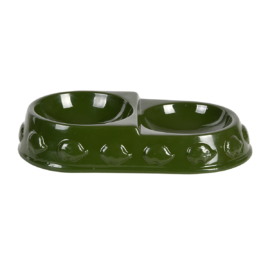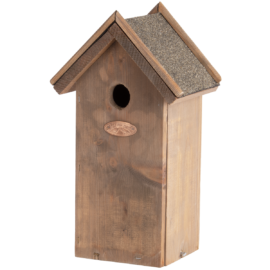This is how you protect your customers (vegetable) garden against slugs and snails
Friday, February 26, 2021
Imagine your client has just brought the spring garden into shape, when in no time he finds out all the plants are full of holes. Slugs and snails wreak havoc under newly dug plants and seedlings, especially at night and in the spring. Young shoots are sometimes even eaten completely bare. What a shame for the (vegetable) garden, where much care and attention is just spent! Yet this silent enemy is easy to combat in a natural way. These tips will help your customer to prevent and solve damage to the (vegetable) garden by slugs and snails.
The two most common snails are the house snail and the slug. The latter causes the most damage. Slugs love fresh young leaves and especially in spring the gardens are full of them. At night they all go out and within a few hours they can destroy a whole (vegetable) garden, which is of course a pity of all the hard work.
Environmentally friendly pest control
Of course your customer wants to get rid of this nasty pest as soon as possible and the first thing that comes to mind is perhaps poison. However, these pesticides are very harmful to the environment and to other animals in the garden, such as birds, hedgehogs and dogs. Therefore, it is wise to choose a more environmentally friendly control, so that the rest of the animals can continue to roam the garden with peace of mind.
In our collection, you will find a special snail trap that catches snails in an environmentally friendly way. Place the snail trap in an open spot in the border or where the snails have caused the most damage.

Then fill the snail trap with a layer of beer; snails love yeast. At night, when the snails are active, they crawl into the snail trap, where they get "drunk" on the yeast and cannot get out of the trap. In the morning, the snails are then easy to remove yourself.
Another method of control is by using copper tape. Snails hate copper, so they avoid the material en masse. A strip of copper tape around a flower pot prevents snails from crawling up. In this way, your customer easily guides the snail away from a specific plant or vegetable.

Snails do not like to move on dry and rough materials. Materials such as coffee grounds, cocoa beans and shell sand cause them to dry out, which makes crawling difficult. Therefore, they quickly turn right around as soon as they come into contact with such materials. Therefore, plants are even better protected by sprinkling a small layer on the soil around each plant.
Call in extra help
The natural enemy also plays a useful role in slug control. Animals that naturally eat slugs are hedgehogs, birds, frogs and toads. By attracting these animals to the garden, it is possible to reduce slug infestation in a naturally friendly way and increase the biodiversity of the garden!

Whereas hedgehogs, toads and frogs like to go for the tasty slug, birds prefer to occupy themselves with the house snails. With the help of bird houses, feeding systems and bird baths, birds will become loyal guests in the garden and will reduce the nuisance of snails. Hedgehogs prefer to hide under something. This makes our hedgehog house, covered with branches and leaves, very attractive to hedgehogs. Handy, because snails also like to hide under the leaves.
Frogs and toads are already happy with a (small) pond. If you have a pond, make sure that they can easily get out of the water. This can be done by creating a gentle slope in the pond. It's also good to know that frogs hibernate in the pond, but toads look for a hiding place between leaves, wood or stones. Our toad house also offers a solution!

Additional tips for controlling snails:
- Regular hoeing of the garden dries out the top layer of soil and makes it harder for the snail to move around.
- Catch snails by hand by hiding pieces of apple or other fruit under an old roof tile in the garden. In the morning, the snails can be manually picked off the roof tile and be removed. Offering fruit also helps attract more blackbirds and thrushes into the garden, which will be very happy when they also discover snails in the garden.
- Chickens also love snails. Allow the chickens to roam freely in the garden, borrow one from a neighbor or purchase a few of these cozy animals. In this way, snails are combated in a natural way plus you will have fresh eggs every morning!
Slug and snail control


Slugtrap snail


Copper tape
Attracting natural pest controllers


Acorn nesting box







